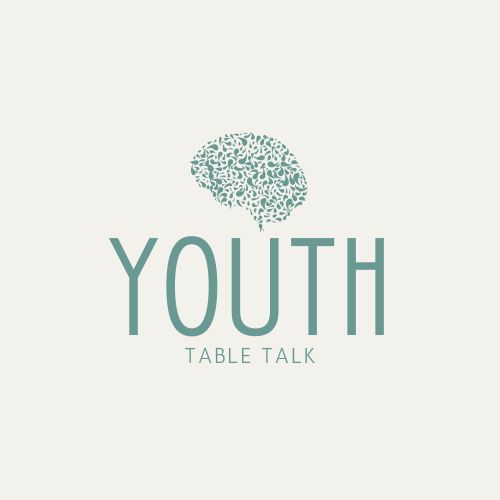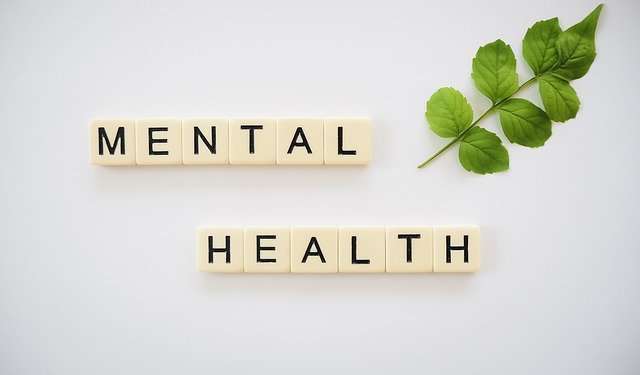Mental health includes emotional, psychological, and social well-being. Our state of mind determines how we think, feel, and act. Mental health is vital at every stage of life, from childhood to adolescence, and adulthood.
The mental health of students is important for their psychological well-being and academic success. According to an American Health College Association survey, there is a strong connection between students’ mental health and academic success. Students with profound psychological distress are less academically successful. They have more anxiety, lower academic self-efficacy, and poor time management skills.
It is imperative to talk about mental health problems among college students to have the courage to discuss their issues with the respected authorities at their institute, with family members at home, or seek professional medical help.
In this article, we will talk about the most common mental health challenges faced by college students. Moreover, this article will also discuss ways to cope with them.
Depression is a medical condition that can affect a student’s mood, behavior, ability to work, study, or interact with other fellow students. A depressed student experiences feelings of sadness and loneliness.
Moreover, he might feel a loss of appetite, hopelessness, unhappiness, and poor attention span. In addition to that, severe depression can also lead to suicidal thoughts.
Mental health & Depression
The World Health Organization (WHO) reports that depression is the leading cause of poor health and disability worldwide out of all the illnesses. According to a survey carried out by the American Psychological Association, 36.4% of college students suffer from depression.
Students experience new lifestyles, friends, roommates, romantic partners, etc. If they fail to manage these firsts, they quickly fall prey to depression.
Suicide is an act of deliberately ending your own life, and it is a public health problem. Every year in the United States, approximately 1,100 college students between the ages of 18-24 commit suicide, and among young adults between 18-25, 8.3% of people have serious suicidal thoughts.
It is the second most common cause of death among people between ages 15-34.
Self-harm & Suicide
On the occurrence of behaviors associated with suicide, several reports indicate that one out of every five suicides among college students occur on the same day of a serious life tragedy that causes severe depression which is the leading cause of suicide among college students. However, there are various other factors, including:
Drug and alcohol abuse
Tragic life events
Access to guns and weapons
Prior suicide attempt
Family history of depression and mental illness
Self-harming behaviors such as burning, cutting, fist punching
Exposure to other colleagues who have attempted suicide or possess a suicidal tendency
Mental health & Anxiety
Anxiety is pervasive among college students. According to the American College Health Association Fall 2018 National College Health Assessment, 63% of the US college students experienced extreme anxiety, and 23% reported being diagnosed or treated by a medical health professional for anxiety disorder. A recent study also suggested that psychological distress among college students, i.e. anxiety, depression, stress rises exponentially in the first semester of college and persists throughout the first year.
A wide array of factors contribute to anxiety in college students. A disrupted sleep cycle because of excessive caffeine consumption to pull all-nighters, complete assignments within the given deadlines, and fear of failing in the exams can lead to anxiety.
Loneliness is another significant cause of mental health problems, including anxiety. Social disengagement and spending too much time on electronic gadgets and social media are other major causes of anxiety and depression.
Eating disorders
Eating disorders are prevalent among teenagers and young adults. However, they are the most common among college-going students, especially girls. The challenges of college life and additional underlying problems create a perfect storm in a student’s life.
The most common types of eating disorders include anorexia and bulimia. Full-blown eating disorders typically begin between ages 18-21. According to The National Eating Disorders Association, between 10-20% of women and 4-10% of men develop eating disorders, and these rates are continuously rising.
Anorexia or Anorexia Nervosa is characterized by an obsessive desire to lose body weight by refusing to eat. Bulimia or Bulimia Nervosa is characterized by distorted body image and an obsessive desire to lose body weight in which bouts of overeating are followed by periods of fasting or purging to lose weight.
College students are more prone to developing eating disorders when increased workload, less structure, more focus on peers collide with anxieties, learning issues, and low self-esteem. Eating disorders occur when the control over a stressful environment is channeled through over-exercise, food restriction, and unhealthy focus on body weight.
Addictions
According to a study conducted by the National Institute on Alcohol Abuse and Alcoholism, four out of five college students consume alcohol. Alcohol drinking is the most common form of substance abuse in college. However, the use of marijuana, prescription, and illicit drugs is also on the rise.
Substance abuse is defined as the overindulgence in, or dependence upon an addictive substance, mainly alcohol, and drugs. Overindulgence or addiction can be described as alcohol or drugs intake to elevate mood and feel “high”.
Withdrawal can lead to memory loss, mood swings, unpleasant physical or mental feelings. Substance overuse is associated with interference in daily activities such as sports, extracurriculars, academics, social engagement, and interpersonal relationships. It is hard to withdraw drugs despite knowing their adverse consequences.
College students feel the urge to take drugs for several reasons, including:
Easy availability everywhere
Curiosity to try and know how does it feel
Relieve stress and feel relaxed
Friends and other colleagues are doing it
Boost to self-esteem
What to do?
The stigma associated with mental health problems serves as a barrier for the students to seek help. Some students avoid talking about it because of concerns regarding finances and confidentiality. However, the above-mentioned mental health challenges need to be addressed as they can take a serious toll on students’ overall well-being and may also lead to further worsening of their condition.
Depression and anxiety go hand in hand. The best place to start if a student is feeling depressed or anxious is to talk about it with a friend or an on-campus health counselor.
Lifestyle Changes:
Students need to bring some lifestyle changes such as healthy eating, daily walking or exercising, interacting with friends, participating in extracurriculars, and maintaining a proper sleep routine. Students should avoid social isolation and excessive electronic media usage. If the lifestyle modifications are not working out for them, students can take Anti-Depressants or Cognitive Behavioural Therapy after seeing medical healthcare professional.
It is crucial to recognize the risk factors or symptoms of suicide in yourself or your friends. If any of your friends are feeling suicidal, or having suicidal thoughts, talk about it. Talking is critical. If you think your friend is developing suicidal tendencies, show interest and be supportive towards them rather than being judgemental. Try to figure out their plan and talk them out of it.
Counsel them and offer hope that alternatives are available. Don’t swear to secrecy. Please don’t leave them alone and take necessary action, including removing any harmful substances around them, and talking to the responsible higher authorities on your campus. You can also inform their parents if need be.
If you have any suicidal thoughts, implement all of the above strategies and divert your mind by engaging in other activities such as sports, social gatherings, and avoiding spending alone time. Try to practice self-care with a healthy lifestyle, good diet and water intake, and adequate sleep.
Eating Disorders:
Eating disorders among college students are a serious problem and can be life-threatening sometimes. They are not just extreme dietary patterns; they are serious mental illnesses that need to be addressed. Students suffering from Eating Disorders are more likely to attempt and commit suicide, engage in self-harming behaviors, and struggle with isolation, anxiety, or depression.
First of all, you need to talk about it. Any mental health problem, starting from depression to eating disorders, needs discussion and counseling. Seeking professional help is the first step towards recovery, and the sooner, the better.
College campuses should provide essential mental health services to their students. They should perform regular mental health check-ups of every student and refer them to more specialized care if necessary. Families should visit if they have sent them away from college. Hence, friends and family should be supportive .
Keeping college students informed about the dangerous outcomes of substance abuse can ensure they can make better decisions about their life. Therefore, it is the college administration and higher authorities’ responsibility to educate their students.
They have to educate them about the side effects and potential hazards of binge drinking. Strict laws should be enforced regarding alcohol and substance abuse in college. Education institutions have to make sure that there are no bars and liquor stores nearby.
Perhaps the most effective way is merely talking about it. College students are highly vulnerable to academic and peer pressure. In that case, many struggling students can benefit from a compassionate friend and a supportive shoulder.
Do you want solutions for your social and psychological problems?
Then Subscribe to our newsletter

